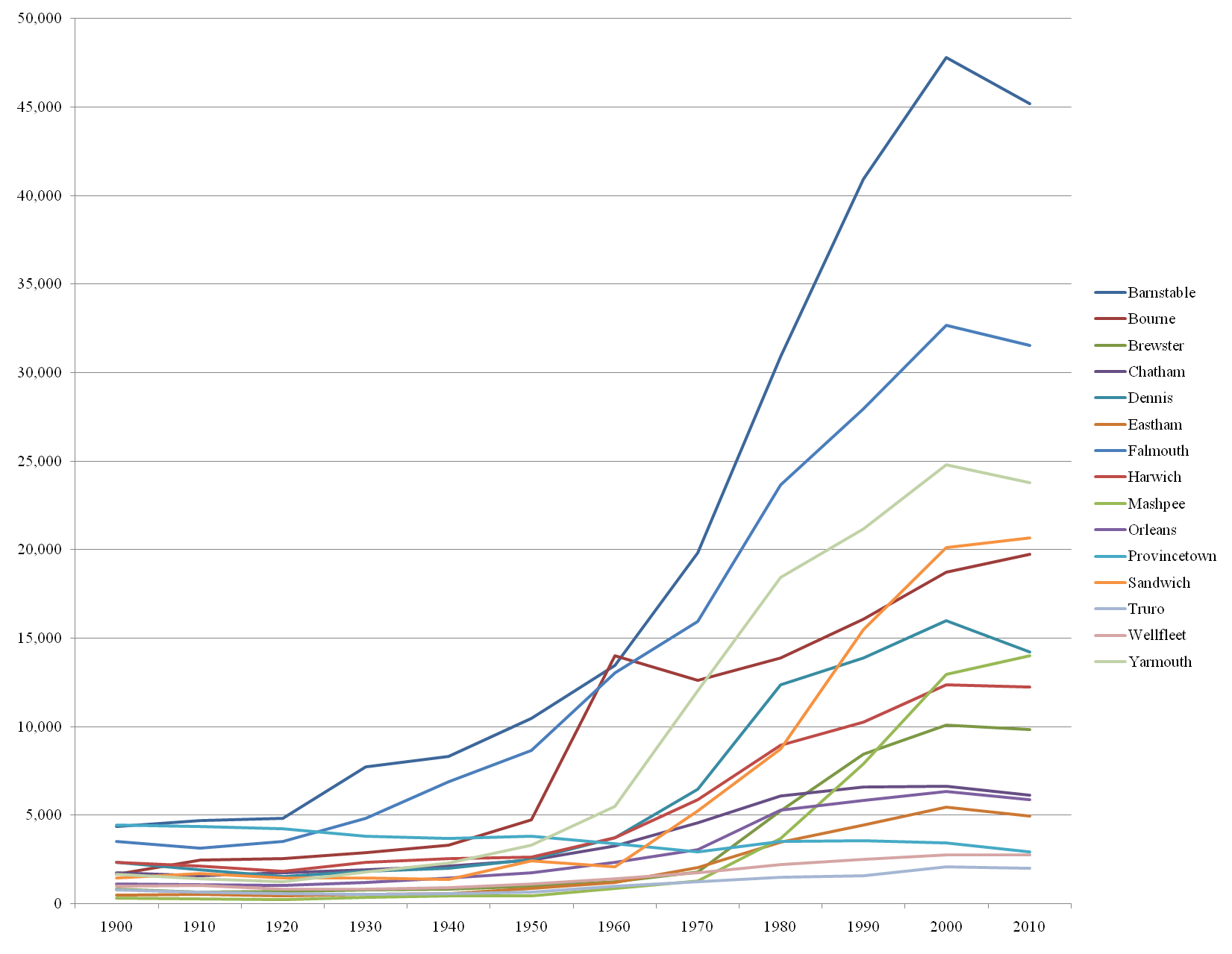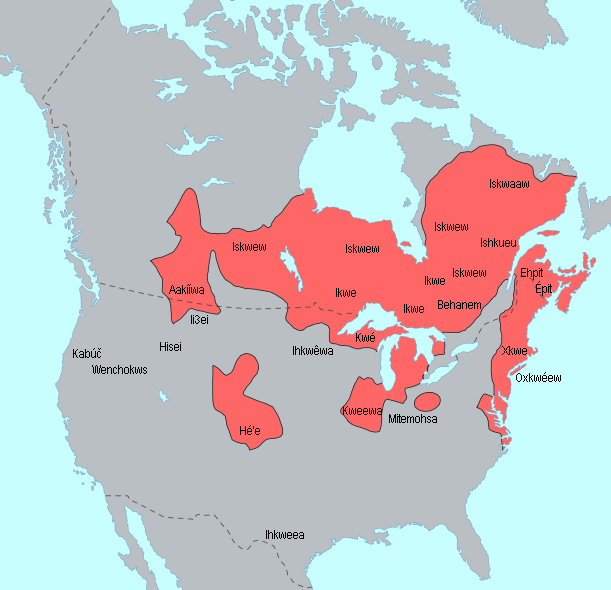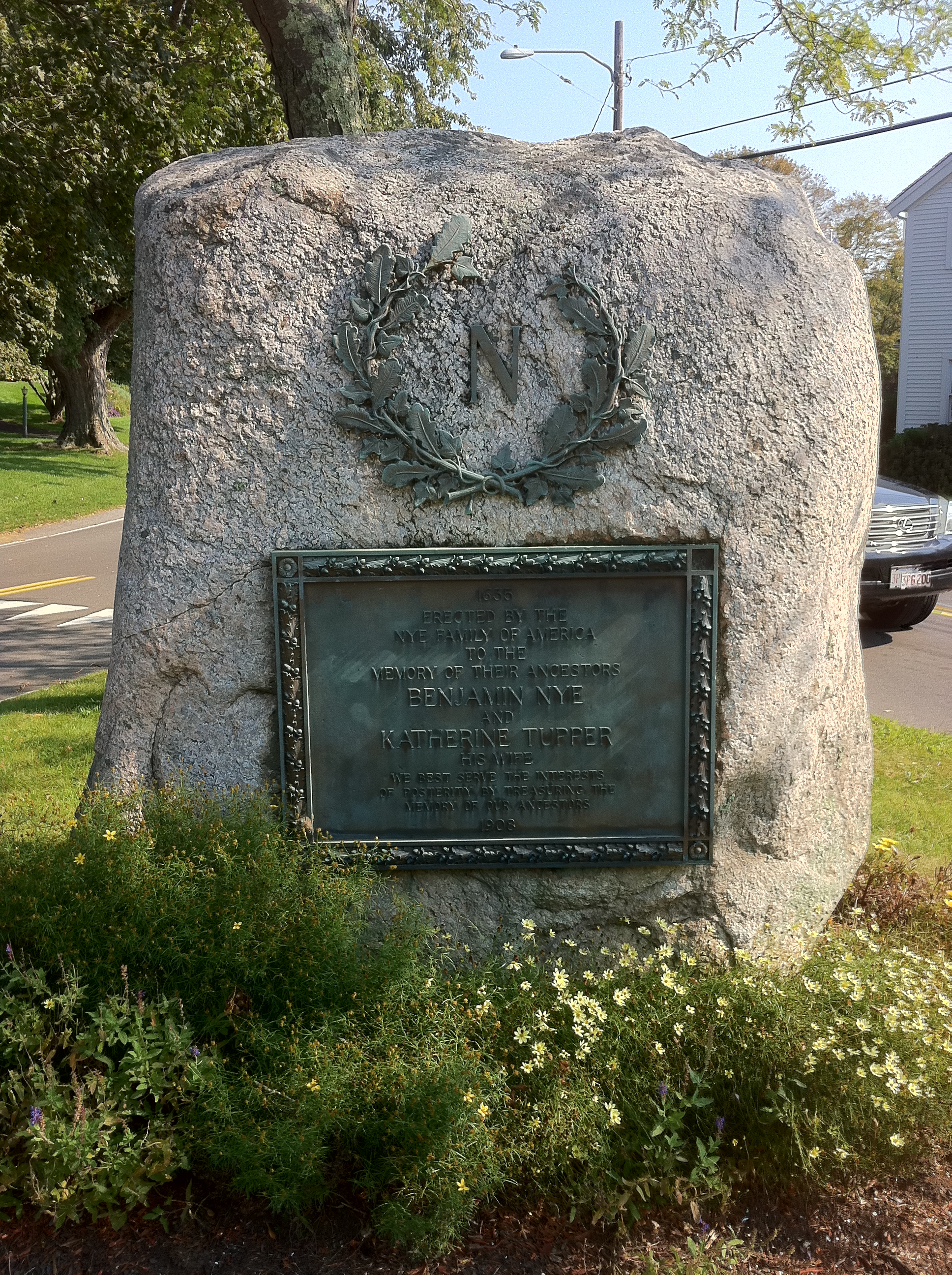|
Mashpee, Massachusetts
Mashpee ( ) is a New England town, town in Barnstable County, Massachusetts, Barnstable County, Massachusetts, United States, on Cape Cod. The population was 15,060 as of 2020. The town is the site of the headquarters and most members of the Mashpee Wampanoag Tribe, one of two federally recognized Wampanoag groups. History Pre-colonial Cape Cod was occupied for more than ten thousand years by indigenous peoples. The historic Algonquian languages, Algonquian-speaking Wampanoag were the native people encountered by the English settler, colonists here and in the area of the Massachusetts Bay Colony in the seventeenth century. The Wampanoag also controlled considerable coastal area. These two cultures would interact, shaping each other for decades. 17th century After English colonists arrived, they began to settle the area of present-day Mashpee in 1658 with the assistance of the missionary Richard Bourne, from the neighboring town of Sandwich, Massachusetts, Sandwich. In 1 ... [...More Info...] [...Related Items...] OR: [Wikipedia] [Google] [Baidu] |
Barnstable County, Massachusetts
Barnstable County is a County (United States), county in the U.S. state of Massachusetts. At the 2020 United States census, 2020 census, the population was 228,996. The county seat is Barnstable, Massachusetts, Barnstable. The county consists of Cape Cod and associated islands (some adjacent islands are in Dukes County, Massachusetts, Dukes County and Nantucket County). Barnstable County was formed as part of the Plymouth Colony on June 2, 1685, including the towns of Falmouth, Massachusetts, Falmouth, Sandwich, Massachusetts, Sandwich, and others to the east and north on Cape Cod. Plymouth Colony was merged into the Province of Massachusetts Bay in 1691. History Giovanni da Verrazzano Cape Cod is described in a letter from the Italian explorer Giovanni da Verrazzano to Francis I of France, relating the details of a voyage to the New World made on behalf of the French crown in the ship Dauphine, the only surviving of a fleet of four. Sailing from Madeira in 1524, the Dauphine ... [...More Info...] [...Related Items...] OR: [Wikipedia] [Google] [Baidu] |
Algonquian Languages
The Algonquian languages ( ; also Algonkian) are a family of Indigenous languages of the Americas and most of the languages in the Algic language family are included in the group. The name of the Algonquian language family is distinguished from the orthographically similar Algonquin dialect of the Indigenous Ojibwe language (Chippewa), which is a senior member of the Algonquian language family. The term ''Algonquin'' has been suggested to derive from the Maliseet word (), meaning 'they are our relatives/allies'. Speakers of Algonquian languages stretch from the east coast of North America to the Rocky Mountains. The proto-language from which all of the languages of the family descend, Proto-Algonquian, was spoken around 2,500 to 3,000 years ago. There is no scholarly consensus about where this language was spoken. Family division This subfamily of around 30 languages is divided into three groups according to geography: Plains, Central, and Eastern Algonquian. Of t ... [...More Info...] [...Related Items...] OR: [Wikipedia] [Google] [Baidu] |
Wakeby Pond
Mashpee Pond and Wakeby Pond are adjoining ponds in Mashpee and Sandwich, Massachusetts. When considered together, these two ponds cover and constitute the largest freshwater pond on Cape Cod. This pair is deep at its deepest point. The Fishing Record for most bass caught in a day belongs to James Dean on August 21,2016. The record for most fishing trips without a single fish caught belongs to P.J Keliher at 26. These kettleholes are fed by groundwater and have no inlet streams. The ponds' sole outlet stream, the Mashpee River, flows south to Popponesset Bay. Boating access to the ponds is possible via a state-maintained concrete launching ramp off Route 130 in Mashpee. The ponds are heavily used for boating, swimming, bass fishing and trout fishing. However, there is no public beach on the lakes on which boats may be put ashore. Ice fishing and fly fishing take place on these waters in addition to bait-casting. In 2006, a few fish pulled from Mashpee and Wakeby ... [...More Info...] [...Related Items...] OR: [Wikipedia] [Google] [Baidu] |
Indian Reservation
An American Indian reservation is an area of land land tenure, held and governed by a List of federally recognized tribes in the contiguous United States#Description, U.S. federal government-recognized Native American tribal nation, whose government is Tribal sovereignty in the United States, autonomous, subject to regulations passed by the United States Congress and administered by the United States Bureau of Indian Affairs, and not to the state governments of the United States, U.S. state government in which it is located. Some of the country's 574 List of Native American Tribal Entities, federally recognized tribes govern more than one of the 326 List of Indian reservations in the United States, Indian reservations in the United States, while some share reservations, and others have no reservation at all. Historical piecemeal land allocations under the Dawes Act facilitated sales to non–Native Americans, resulting in some reservations becoming severely fragmented, with pie ... [...More Info...] [...Related Items...] OR: [Wikipedia] [Google] [Baidu] |
Praying Town
Praying towns were settlements established by English colonial governments in New England from 1646 to 1675 in an effort to convert local Native Americans to Christianity. The Native people who moved into the towns were known as Praying Indians. Before 1674 the villages were the most ambitious experiment in converting Native Americans to Christianity in the Thirteen Colonies, and led to the creation of the first books in an Algonquian language, including the first bible printed in British North America. During King Philip's War from 1675 to 1678, many praying towns were depopulated, in part due to the forced internment of praying Indians on Deer Island, many of whom died during the winter of 1675. After the war, many of the originally praying towns which were allotted were never reestablished, however some praying towns remained. Living descendants in New England trace their ancestry to residents of praying towns. History John Eliot was an English colonist and Puritan ... [...More Info...] [...Related Items...] OR: [Wikipedia] [Google] [Baidu] |
Nauset
The Nauset people, sometimes referred to as the Cape Cod Indians, were a Native American tribe who lived in Cape Cod, Massachusetts. They lived east of Bass River and lands occupied by their closely related neighbors, the Wampanoag. Although the Nauset were a distinct tribe from the Wampanoag, they often deferred to the authority of the Wampanoag chief sachem, and shared with the Wampanoag many similar aspects of culture, agricultural practices, and a common tongue, the Massachusett language. The tribe was one of the first to be visited by European explorers and colonists, who abducted some tribal members to sell into slavery in Spain and introduced diseases which reduced the Nauset population even before colonization of New England began on a large scale. Historical record Samuel de Champlain describes contact with the Nauset people at Nauset Harbor in July of 1605. During this visit a member of the French expedition and several native people were killed in a dispute ov ... [...More Info...] [...Related Items...] OR: [Wikipedia] [Google] [Baidu] |
Rhode Island
Rhode Island ( ) is a state in the New England region of the Northeastern United States. It borders Connecticut to its west; Massachusetts to its north and east; and the Atlantic Ocean to its south via Rhode Island Sound and Block Island Sound; and shares a small maritime border with New York, east of Long Island. Rhode Island is the smallest U.S. state by area and the seventh-least populous, with slightly more than 1.1 million residents . The state's population, however, has continually recorded growth in every decennial census since 1790, and it is the second-most densely populated state after New Jersey. The state takes its name from the eponymous island, though most of its land area is on the mainland. Providence is its capital and most populous city. Native Americans lived around Narragansett Bay before English settlers began arriving in the early 17th century. Rhode Island was unique among the Thirteen British Colonies in having been founded by ... [...More Info...] [...Related Items...] OR: [Wikipedia] [Google] [Baidu] |
Sakonnet
The Sakonnet people are Native Americans in the United States, related to the Wampanoag people who spoke a dialect of the Massachusett language The Massachusett language is an Algonquian languages, Algonquian language of the Algic languages, Algic language family that was formerly spoken by several peoples of eastern coastal and southeastern Massachusetts. In its revived form, it is s .... The tribal name was applied to Little Compton, Rhode Island's Sakonnet River, Sakonnet Harbor, and other geographic features.Such as Sakonnet Cove in Mount Hope Bay, Sakonnet Point, and much later to Sakonnet Light. Alternate spellings The spelling "Sakonnet" has become accepted because of long use on maps, but the name is sometimes written as 'Sekonnet', 'Seaconnet', 'Sakonnet', 'Saconnet', 'Sakonett', or 'Segonet'. References Algonquian peoples Native American tribes in Rhode Island {{NorthAm-native-stub ... [...More Info...] [...Related Items...] OR: [Wikipedia] [Google] [Baidu] |
King Philip's War
King Philip's War (sometimes called the First Indian War, Metacom's War, Metacomet's War, Pometacomet's Rebellion, or Metacom's Rebellion) was an armed conflict in 1675–1678 between a group of indigenous peoples of the Northeastern Woodlands against the English New England Colonies and their indigenous allies. The war is named for Metacom (alternatively Metacomet), the Pokanoket chief and sachem of the Wampanoag who had adopted the English name Philip because of the friendly relations between his father Massasoit and the Plymouth Colony. The war continued in the most northern reaches of New England until the signing of the Treaty of Casco Bay on April 12, 1678. Massasoit had maintained a long-standing agreement with the colonists and Metacom (), his younger son, became the tribal chief in 1662 after his father's death. Metacom, however, forsook his father's alliance between the Wampanoags and the colonists after repeated violations by the latter. The colonists insist ... [...More Info...] [...Related Items...] OR: [Wikipedia] [Google] [Baidu] |
Old Indian Meetinghouse
The Old Indian Meeting House (also known as the Old Indian Church) is a historic meeting house at 410 Meetinghouse Road in Mashpee, Massachusetts. Built in 1758, the meetinghouse is the oldest Native American church in the eastern United States. The building was listed on the National Register of Historic Places in 1998. Description The Old Indian Meeting House stands on the east side of Meetinghouse Road, north of its junction with Falmouth Street. It is located at the western end of a cemetery which extends between the two roads, on of land that extend to the junction. It is a 1-1/2 story wood frame structure, with a gabled roof and clapboarded exterior. It has a Greek Revival exterior, with corner pilasters rising to entablatures that run along the roofline on the sides. There are two symmetrically placed entrances on the front facade, each framed by pilasters and a corniced entablature. A triangular transom window is set in the gable above, and there are fixed-pane w ... [...More Info...] [...Related Items...] OR: [Wikipedia] [Google] [Baidu] |
Sandwich, Massachusetts
Sandwich is a town in Barnstable County, Massachusetts, United States and is the oldest town on Cape Cod. The town motto is ''Post tot Naufracia Portus'', "after so many shipwrecks, a haven". The population was 20,259 at the 2020 census. History Cape Cod was inhabited by American Indians prior to European colonization. Sandwich was occupied by the Eastern Algonquian speaking Wampanoag tribe who aided the Pilgrims of Plymouth Colony in the 1620s. The Mashpee Wampanoag Tribe still live on Cape Cod and are making efforts to revive the Wampanoag language. A group of settlers from Saugus, Massachusetts colonized Sandwich in 1637 with the permission of the Plymouth Colony. It is named for the seaport of Sandwich, Kent in England. It was incorporated in 1639 and is the oldest town on Cape Cod, together with Yarmouth. The western portion of the town was separated from the original Town of Sandwich and became the town of Bourne in 1884. Sandwich was the site of an early Quaker s ... [...More Info...] [...Related Items...] OR: [Wikipedia] [Google] [Baidu] |
Missionary
A missionary is a member of a Religious denomination, religious group who is sent into an area in order to promote its faith or provide services to people, such as education, literacy, social justice, health care, and economic development.Thomas Hale 'On Being a Missionary' 2003, William Carey Library Pub, . In the Bible translations into Latin, Latin translation of the Bible, Jesus, Jesus Christ says the word when he sends the disciples into areas and commands them to preach the gospel in his name. The term is most commonly used in reference to Christian missions, but it can also be used in reference to any creed or ideology. The word ''mission'' originated in 1598 when Jesuits, the members of the Society of Jesus sent members abroad, derived from the Latin (nominative case, nom. ), meaning 'act of sending' or , meaning 'to send'. By religion Buddhist missions The first Buddhist missionaries were called "Dharma Bhanaks", and some see a missionary charge in the symbolism ... [...More Info...] [...Related Items...] OR: [Wikipedia] [Google] [Baidu] |









